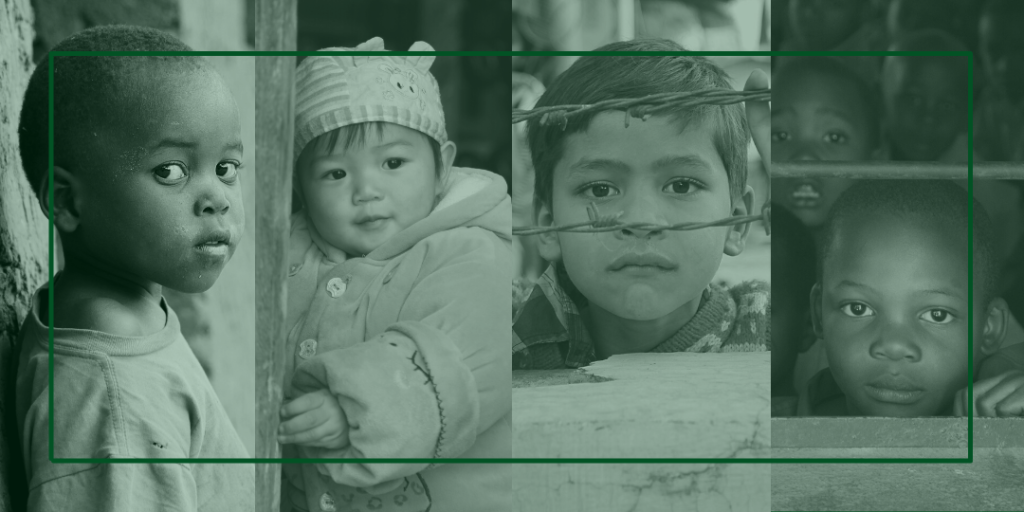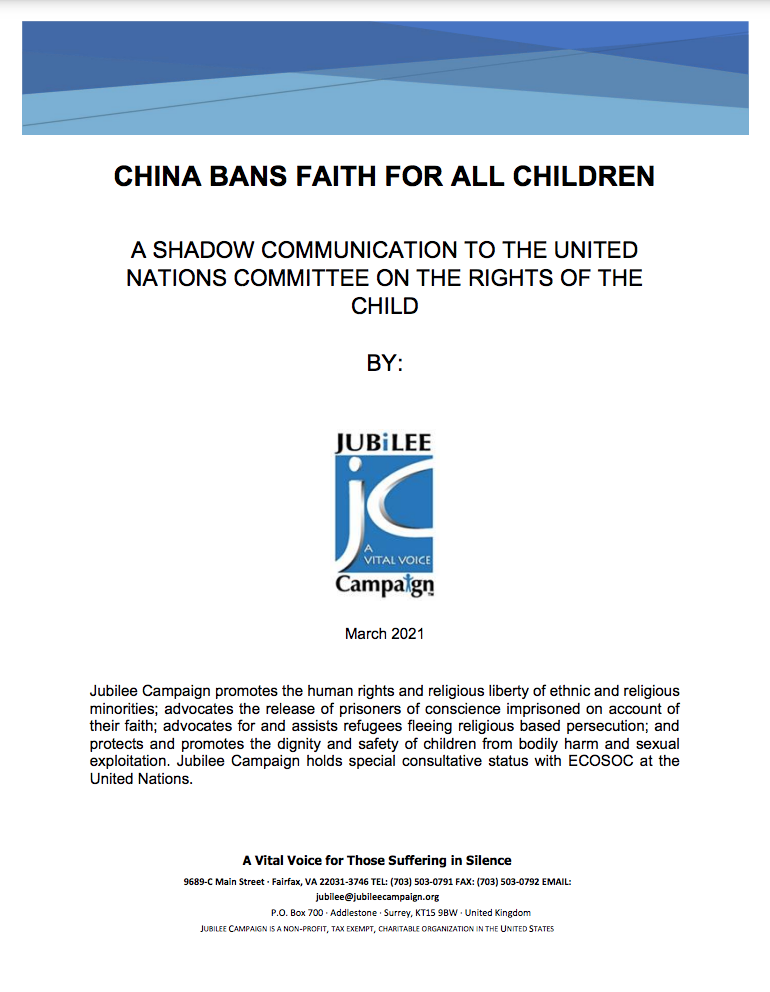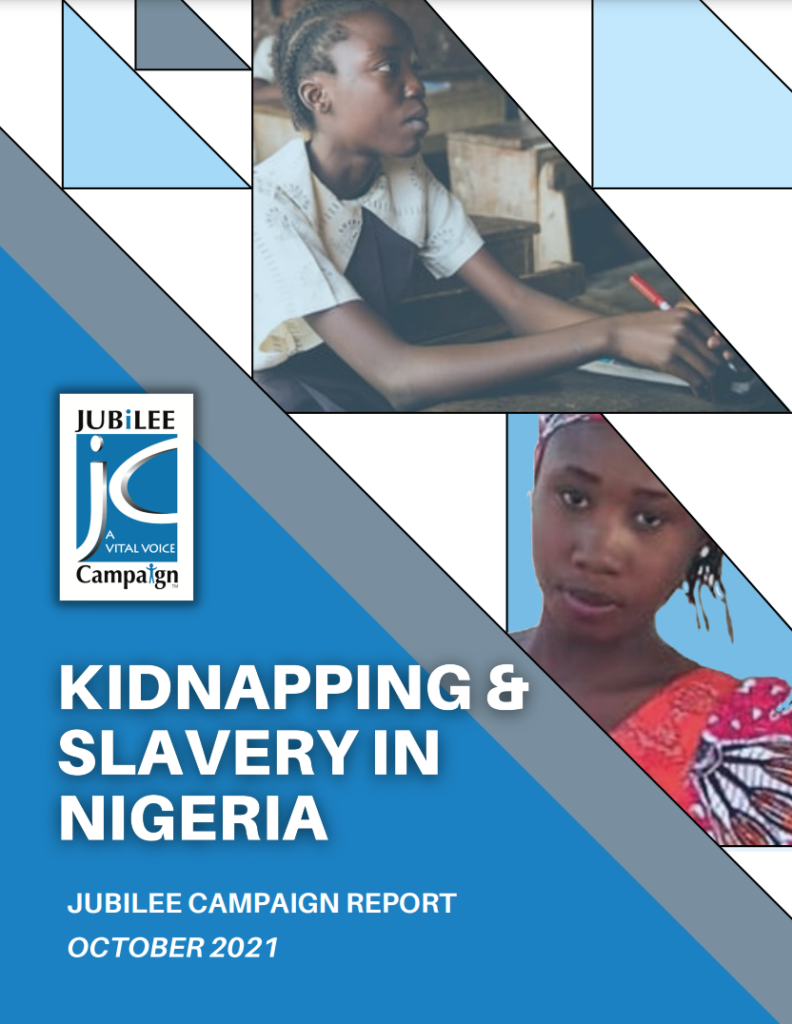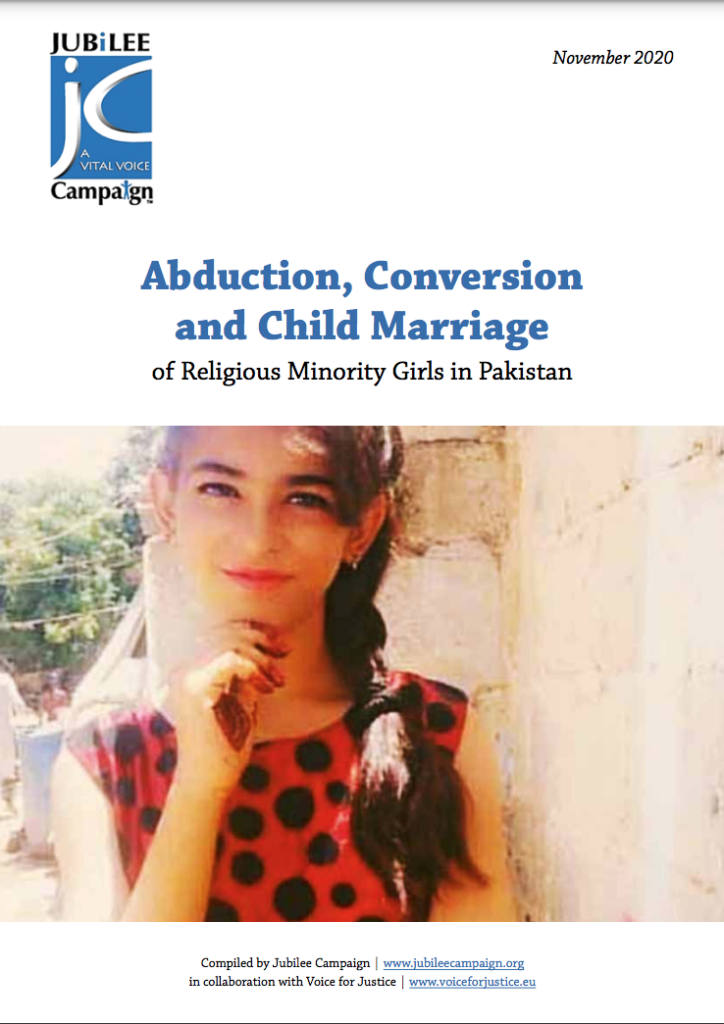20 November marks the 67th annual World Children’s Day, first established by the United Nations in 1954 to “promote international togetherness, awareness among children worldwide, and improving children’s welfare”. 20 November is also the date upon which the Declaration on the Rights of the Child was adopted by the General Assembly in 1959, and when the Convention on the Rights of the Child was adopted in 1989. Regrettably, despite both of these conventions which solidify the wide breadth of child rights and freedoms – to development, health, education, safety, security, faith, identity – millions of children around the world find themselves in situations where they are unlawfully persecuted, exploited, and neglected.
On this World Children’s Day, we would like to share with you some of the areas of concern regarding children’s rights in which Jubilee Campaign has been involved recently. These include the Communist Party’s persecution of children of faith in China; the abduction and conscription of child soldiers in sub-Saharan African countries (Eritrea, Nigeria); and the abduction, forced religious conversion, and forced marriage of Pakistan’s faith minority girls.
China Violates Children’s Rights to Freedom of Religion or Belief (FoRB)
China has adopted international conventions provisioning citizens with the right to freedom of religion or belief – i.e., the International Covenant on Economic, Social, and Cultural Rights; and the Convention on the Rights of the Child – and has outlined religious freedom in its own domestic legislation, including the nation’s constitution. In reality, however, people of faith in China are severely repressed and punished for their faith-related activities.
Across numerous Chinese provinces, churches have been ordered by the local governments to erect signage prohibiting children under the age of 18 from entering church buildings; similarly, schools have been instructed to discourage students from practicing faith and punish those who continue their religious activities. Concurrently, schools have been forced to plan anti-religious and pro-atheist curriculums seeking to erase any semblances of the Christian faith among students.
Image by Sergio Tittani on Flickr (CC BY-NC 2.0)
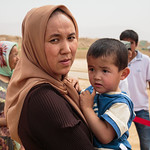
Uyghur children are forced to follow regulations that prohibit them from wearing religious clothing, celebrating Ramadan, attending mosque services, and participating in religious activities. Thousands of Uyghur children whose parents and adult relatives have been imprisoned for their faith and ethnicity are sent to government-run care facilities where they are forced to abandon their faith and Uyghur language and are indoctrinated with atheist beliefs and the Mandarin language. The separation of Uyghur children from their parents and forced abandonment of their heritage has devastated these children, and many caretakers have reported mental illnesses, attachment issues, and suicidal ideation among Uyghur children.
Tibetan Buddhist children face a very similar set of persecutory circumstances to their Uyghur counterparts. Across the autonomous region of Tibet, schools have been ordered to replace their Tibetan language classes with Mandarin classes. Though this may appear to be an attack on the linguistic heritage of Tibetan children, it is important to note that linguistic knowledge is an important facet of Tibetan Buddhist practice and worship. Moreover, regulations have been enacted which prohibit Tibetan Buddhist children from attending monasteries and religious festivals.
Children who are practitioners of Falun Gong – a spiritual practice with physical instruction – or who are children of Falun Gong practitioners have been forced to keep their faith a secret from their friends and school peers. The Chinese government, and a large portion of Chinese society, view Falun Gong with distaste. Falun Gong children have reported being bullied in their schools and forced to consume anti-Falun Gong propaganda.
Early this year in March, we published our 94-page shadow communication to the United Nations Committee on the Rights of the Child, titled China Bans Faith for All Children, in which we comprehensively outline the Chinese government’s violation of children’s FoRB rights and persecution of children of faith and belief. You can click on the image on the right to open and view the document in its entirety.
Conscription of Child Soldiers in Sub-Saharan Africa
A recent United Nations report revealed that approximately 8,500 children in the world were used as child soldiers in 2020, another 2,600 killed and 5,700 injured in conflicts; unsurprisingly, nearly 40% of the world’s child soldiers are located in Africa. This has unfortunately been the case for many years, as a 2001 report by The Coalition to Stop the Use of Child Soldiers estimated that there were 300,000 child soldiers active at the time, with 120,000 of them located in Sub-Saharan Africa.
Nigeria
Islamist militant group Boko Haram has gained much international media attention over the past decade or so, especially after it started using mass kidnappings as a tactic to obtain young girls for sexual and domestic servitude and boys for chid soldier purposes. One of our previous news releases on International Day of the Girl Child focused specifically on the plight of abducted girls; here, we will focus on the circumstances Nigerian boys are put through as child soldiers.
Image by Dolapo Falola on Flickr (CC BY-SA 2.0)
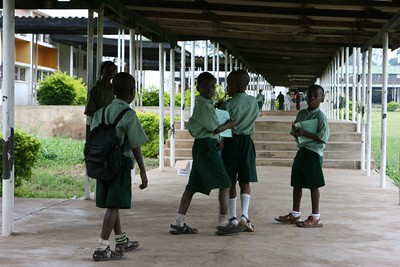
Former Boko Haram captive Lydia Musa in April 2019 reflected on how she woke up each and every morning in the militant camp to see groups of boys as young as 10 years old wielding guns and learning how to carry out attacks and ambushes. Also in April 2019, UNICEF released official numbers estimating that no fewer than 3,500 Nigerian children between the ages of 13 and 17 had been “recruited by non-state armed groups” such as Boko Haram from 2013 to 2017. More Recently, in September 2020, authorities from the regional Multinational Joint Task Force (MNJTF), which focuses on eradicating Boko Haram insurgency, highlighted a current uptick in the group’s use of child soldiers, as can be evidenced by recent videos showing children dressed in militant uniforms and holding assault rifles nearly as big as their own bodies. In 2020, Amnesty International interviewed 44 former Boko Haram child soldiers; 12 were kidnapped and forced to become soldiers under the age of 15. The Nigerian military captured one 15-year-old boy who was recruited by Boko Haram to make bombs; in his five years of militancy, he estimated he had constructed some 500 bombs.
In October 2021, Jubilee Campaign published a report, Kidnapping & Slavery in Nigeria, outlining Islamist militant groups’ – Boko Haram, Islamic State West Africa Province (ISWAP), Fulani militants – involvement in slavery and child soldier recruitment. You can click on the image above to open and view the document in its entirety.
Eritrea
Just over a year ago in November 2020, Ethiopian Prime Minister Abiy Ahmed – who ironically had been awarded a Nobel Peace Prize the year prior – ordered a military offensive into the region of Tigray against the Tigray People’s Liberation Front, a nationalist paramilitary group and now political party who PM Ahmed accused of attacking a federal military base. In the months directly following the start of the military offensive, Eritrean soldiers had joined Ethiopian soldiers in the Tigray, where they have together engaged in human rights violations against civilians possibly amounting to war crimes, including: extrajudicial killings, physical torture, rape and sexual violence, looting, and more.
Our concerns – in addition to the fact that these atrocities are taking place against civilians in the 96% Christian region of Tigray, whose thriving faith population gives Ethiopia the moniker of one of the oldest Christian countries in the world – are that the Eritrean military and Ethiopia military alike have been increasingly forcing children under the age of 18 to participate in military training and then become soldiers on the front line in Tigray. One young Eritrean boy, Rodanim Yemane, reflected on how he was abducted outside of his home a month after his 16th birthday, endured strenuous military training, and lost contact with his family before being sent to fight in Tigray and capture the president of the Tigrayan region. A 17-year-old Ethiopian boy [anonymous] shared his similar circumstances about how he was “forcefully recruited” while playing soccer and joined another 50 boys and girls for military training against their will; “I was taken by force to the war front. My family couldn’t say anything because they feared for their life.” Even the Tigrayan forces are allegedly conscripting child soldiers and using them “as a first line of defense against opposing forces” and “for the purpose of creating human waves with the intent to overwhelm the [opposition].”
Abduction and Forced Marriage of Religious Minority Girls in Pakistan
In predominantly Muslim Pakistan, we have increasingly seen in recent years reports of religious minority girls – most often Christian or Hindu – being kidnapped by radical Muslim men, forced to abandon their faith and convert to Islam, and even coerced to marry their abductors against their will despite that they are children. Concurrently, Pakistan’s legal and judicial system offers little remedy for these girls; police authorities will accept fraudulent documents claiming that the victims are over the age of 18, and even when evidence is provided that the girls are underaged, it is ignored and overlooked. At the same time, girls often remain in the captivity of their kidnappers during trial proceedings, meaning they are reluctant to testify against the perpetrators that they must return to at the end of the day. All the while, the broader radical Muslim community pressures and even threatens court judges into ruling in favor of the perpetrators rather than the victims.
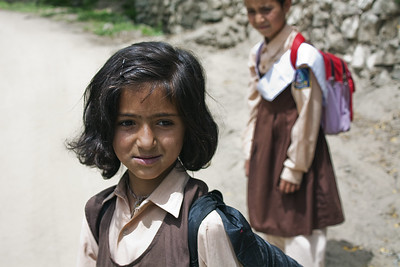
Image by lukexmartin on Flickr (CC BY-ND-NC 2.0)
Perhaps the most widely known story is the abduction and forced marriage of 13-year-old Christian girl Arzoo Raja to her 45-year-old Muslim neighbor Azhar Ali in October 2020. Arzoo’s family faced tremendous difficulty advocating for Arzoo’s release and safe return until the case drew international attention. While the court initially ruled that the marriage was legal, in November it found instead that Ali had committed a crime by marrying a child; in December, however, Ali was released from prison on bail. Arzoo is currently safe in a government-run shelter.
Arzoo’s case is just one of many. In June 2020, three Pakistani men abducted 12-year-old Christian girl Farah Shaheen before one of the perpetrators raped her, shackled her, and forced her to work as a servant; she was also forcibly converted to Islam. Authorities rescued Farah in December but dropped her case as she alleged she had willingly married her kidnapper and converted religions, though it is believed she made these statements under coercion. In March 2021, five men abducted 13-year-old Hindu girl Kavita Bai; a case has been opened into the circumstances of her kidnapping.
In November 2020, Jubilee Campaign published a report Abduction, Conversion and Child Marriage of Religious Minority Girls in Pakistan, which you can see below. You can click on the image on the right to open and view the document in its entirety.

